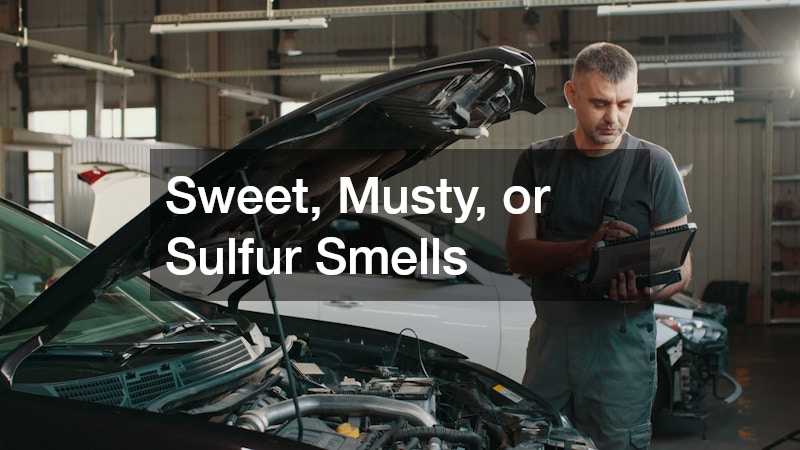Owning a car comes with the responsibility of regular maintenance and timely repairs. Recognizing when your car needs immediate attention can prevent costly damage and ensure your safety on the road. This article highlights key signs that indicate your vehicle requires urgent care.
How Do I Know If My Car Needs Immediate Attention?
Unusual Noises
Unexpected sounds, such as grinding, squealing, or knocking, are often the first indicators of a problem under the hood. Such noises can be caused by worn-out brakes, a failing engine, or issues with the suspension system.
Ignoring these sounds might not only lead to costly car repair but also compromise your safety, as unresolved problems can escalate quickly.
Regularly inspecting your vehicle for these auditory cues can aid in the early detection of potential issues. For instance, a grinding noise when applying brakes indicates worn-out brake pads that need replacing. A squealing noise from the engine belt could forecast a need for replacement before it snaps.
Addressing such noises proactively can extend the life of your vehicle. Conducting timely repairs ensures the longevity of the car’s components. This can also prevent you from facing inconvenient breakdowns or, worse, accidents while on the road.
Warning Lights
Dashboard warning lights, such as the check engine light, the oil pressure light, or the battery alert signal that something is amiss with your car. The check engine light alone can indicate various issues, from minor faults to significant problems that necessitate urgent intervention. Promptly addressing these alerts can save you from severe engine damage and hefty repair bills.
These warning indicators are designed to catch your attention immediately. For example, an oil pressure light can mean something as simple as a low oil level or something as serious as a failing oil pump. Hence, it’s critical to decipher these signals properly or consult with a mechanic right away.
Ignoring these warnings often leads to exacerbated problems. Regular maintenance checks and being attentive to the dashboard signs can protect the long-term health of your vehicle. This vigilance ensures your car remains efficient, reliable, and safe.
Your Car is Leaking Fluids
Identify the Fluid
Different fluids in your car serve specific purposes, and identifying the type of fluid leaking can help isolate the issue. Oil, transmission fluid, coolant, and brake fluid are common leaks that require immediate attention. Knowing the color, smell, and location of the leakage can assist in identifying which fluid is leaking, thus pinpointing the malfunctioning component.
For instance, a bright red stain under your car would typically indicate a transmission fluid leak. A sweet-smelling green or orange liquid might suggest a coolant leak, which, if left unaddressed, can lead to overheating and severe engine damage. Clear or slightly brown oily puddles could mean an oil leak, which has a broad range of implications from a minor gasket failure to a substantial engine ailment.
Addressing fluid leaks as soon as they’re identified not only prevents performance issues but also mitigates environmental impact. Leaks can lead to soil contamination, thus harming local ecosystems. Moreover, maintaining optimal fluid levels is crucial for efficient operation and longevity of the vehicle.
Address the Leak Quickly
Once the fluid is identified, repairing the leak should be a top priority. Delaying repairs can impact your vehicle’s performance and safety, potentially leading to engine or brake failure. Addressing leaks promptly ensures your vehicle operates smoothly and safely, reducing the risk of surprise breakdowns.
Failure to address even a minor leak can escalate into more severe problems over time. For example, a small coolant leak not only lowers the efficiency of the cooling system but can also lead to overheating. Over time, this can cause significant damage to the engine block or gasket, leading to costly repairs.
Proactively fixing leaks preserves the overall integrity of your vehicle. It prevents minor issues from cascading into major mechanical failures. Timely interventions keep repair costs manageable and safeguard both your vehicle and your safety on the road.
Your Car Is Producing Strange Smells
Burning Odors
Smelling something burning inside your car could indicate overheated brakes, a clutch issue, or an electrical short circuit. It’s crucial to diagnose the problem quickly to prevent accidents or mechanical failures. Neglecting these odors can compromise car performance and elevate safety risks significantly.
For instance, a persistent burning smell when applying the brakes might mean that the brake pads are worn down or the brake fluid is overheating. This condition demands immediate attention to maintain effective braking performance. An electrical burning odor could signal a short circuit, posing a fire hazard if not addressed promptly.
Sweet, Musty, or Sulfur Smells
Unfamiliar smells like sweet syrup, mustiness, or rotten eggs suggest issues such as a coolant leak, mold in the air conditioning system, or problems with the catalytic converter, respectively. Each of these requires prompt attention to avoid further complications. Proper identification and timely repair can prevent costly damages and ensure a safe driving experience.
A sweet smell is typically indicative of a coolant leak, where antifreeze escapes from its designated system. Musty odors could mean mold or mildew growth within the HVAC system, often needing a thorough cleaning or component replacement. Sulfur or rotten egg smells suggest problems with the catalytic converter, which is crucial for reducing harmful emissions.
Recognizing the signs that your car needs immediate attention is essential for maintaining its longevity and ensuring your safety. By understanding the warning signs, from unusual noises and fluid leaks to strange smells, you can take proactive steps to address the issues before they escalate. Regular maintenance and timely intervention are the keys to keeping your vehicle in optimum condition.


